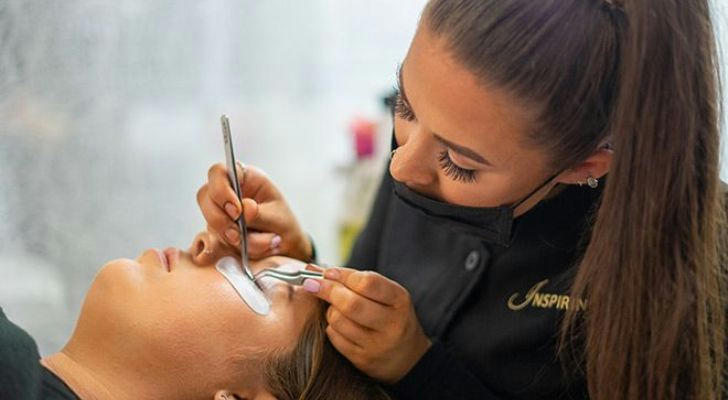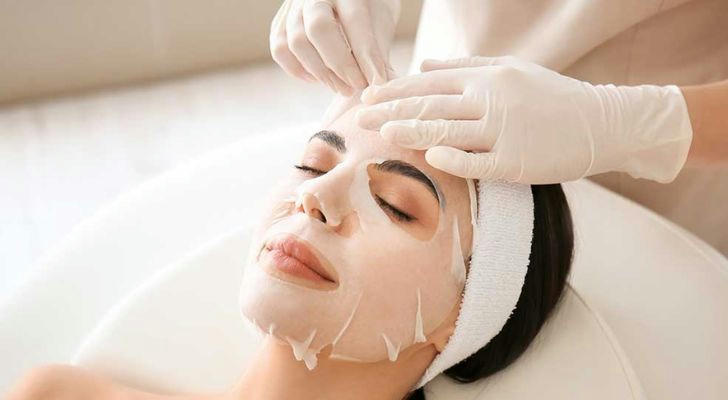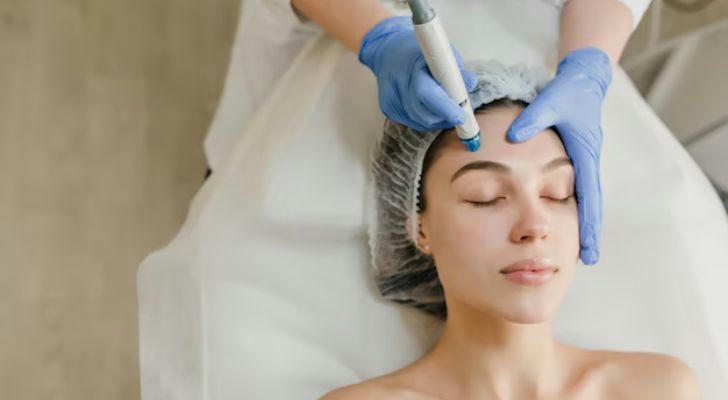The Rise of the Beauty Industry: Why Beauty Training Courses Are Becoming a Career Favorite

The Rise of the Beauty Industry: Why Beauty Training Courses Are Becoming a Career Favorite In recent years, the rapid growth and vast potential of the beauty industry have made beauty training courses a popular choice in vocational education. More and more people are opting for professional training to enter this field. Whether they are young professionals starting their careers or individuals seeking a career change, many are drawn to the immense opportunities and flexible career paths offered by the beauty industry. The sector has evolved from traditional beauty services to encompass tech-driven and high-end personalized services, becoming a key industry in modern society. Below are the reasons why beauty training courses are gaining such widespread popularity.
1. Growing Demand in the Beauty Industry
With global economic development and rising living standards, people are paying unprecedented attention to personal appearance. Skincare, makeup, nail art, and minimally invasive beauty treatments have become essential tools for boosting confidence. From Asia's sophisticated skincare trends to the popularity of minimally invasive procedures in the West, the global beauty market's demand for skilled professionals is continuously increasing. According to statistics, the beauty industry grows by billions of dollars annually, directly driving the rise of beauty training courses that equip aspiring professionals with essential skills. This growth is evident not only in metropolitan areas and high-end markets but also in smaller cities and rural areas. As beauty awareness spreads, the demand for daily beauty services is expanding—from basic skincare to specialized high-end treatments—creating a thriving market. Beauty training courses have become the go-to option for individuals seeking to learn and enhance their skills to enter this booming field.
2. Low Entry Barriers with High Growth Potential
Unlike professions that require extensive academic qualifications or long-term professional training, the beauty industry offers relatively low barriers to entry. Most beauty training courses do not require a specific academic background or advanced technical expertise. Anyone with passion and patience can acquire the necessary skills through a few months of training.
However, this does not mean the industry lacks growth potential. In fact, career paths in the beauty sector are clearly defined, ranging from junior beauty therapists to senior technicians, salon managers, or even independent entrepreneurs. As market demands diversify and upscale, beauty professionals can continually upgrade their skills, achieving higher income levels and professional recognition. For aspiring entrepreneurs, the beauty industry offers abundant opportunities for starting their own businesses.
3. Technological Advancements Driving New Courses
Technological advancements in the beauty industry have driven the diversification of training courses. Techniques such as microneedling, laser treatments, and semi-permanent makeup have gained widespread popularity, transforming the industry into a more professional and technology-driven field.
In the past, beauty services relied heavily on traditional methods and experience. Today, high-tech equipment and medical-grade treatments are reshaping the market. Beauty training courses have adapted to this trend by incorporating modules on advanced technologies. These courses not only meet current market demands but also enhance the competitiveness of beauty professionals. For instance, modern beauty programs teach not only how to operate cutting-edge beauty devices but also foundational knowledge of skin science and health care, opening up broader career opportunities for students.

4. Flexible and Diverse Learning Options
The flexibility and variety of beauty training courses are major factors contributing to their popularity. Many institutions offer full-time, part-time, and even online courses to cater to the needs of different learners. Whether young people looking to dedicate themselves to full-time study or working adults balancing their careers and families, there’s a program to suit everyone.
Online beauty training, in particular, has gained significant traction. With the development of the internet, many institutions now provide high-quality online courses that include video tutorials, virtual practical sessions, and mentor guidance. This format reduces time constraints and attracts learners from around the world.
5. High Salaries and Freelance Opportunities
The promise of high earnings and flexible work arrangements makes the beauty industry an attractive career choice. Experienced professionals, especially those specializing in high-end beauty services or minimally invasive treatments, can command lucrative salaries.
Additionally, the industry is highly suited to freelance work. Many beauty professionals choose to open their own studios, provide mobile services, or work as independent contractors, enjoying greater autonomy in managing their time and clients.
The beauty industry also offers substantial global mobility. Internationally certified professionals can find work in various markets, particularly in countries and regions where high-end beauty services are in demand.

6. Rising Demand for Personalized Services
Modern consumers are increasingly seeking personalized beauty services tailored to their unique preferences and needs. From makeup styles to skincare regimens, clients value customization. This trend has driven the demand for beauty professionals with diverse skill sets.
Beauty training courses often teach students how to design personalized solutions based on clients’ skin conditions, personal preferences, and the latest trends. These value-added skills not only improve customer satisfaction but also help beauty professionals establish strong reputations and loyal clientele.
7. The Influence of Social Media
The rise of social media has provided a powerful platform for promoting beauty services. Beauty professionals can showcase makeup techniques, skincare solutions, and client transformations, quickly attracting potential customers and boosting their personal brand.
Many beauty training courses now include lessons on social media marketing, helping students learn how to effectively promote their skills and services on platforms like Instagram, TikTok, and YouTube. A successful beauty professional is often both a technical expert and a skilled content creator, leveraging social media to reach a broader audience and even attract international clients.

8. A Perfect Fit for Female Entrepreneurs
The beauty industry is an ideal space for female entrepreneurs. Many women use beauty training courses as a stepping stone to acquire professional skills and gradually establish their own businesses. From opening home-based beauty studios to managing professional salons, women have immense opportunities to grow and thrive in this sector. The industry not only provides financial independence but also a platform for creativity and personal fulfillment.
Conclusion
Beauty training courses are becoming a career favorite due to the growing demand for beauty services, technological advancements, flexible learning options, and attractive career prospects. For those looking to enter this thriving industry, these courses offer not only the chance to acquire valuable skills but also a pathway to success. As the beauty sector continues to expand, the importance of training programs will only increase, creating more opportunities for professionals and entrepreneurs alike.
